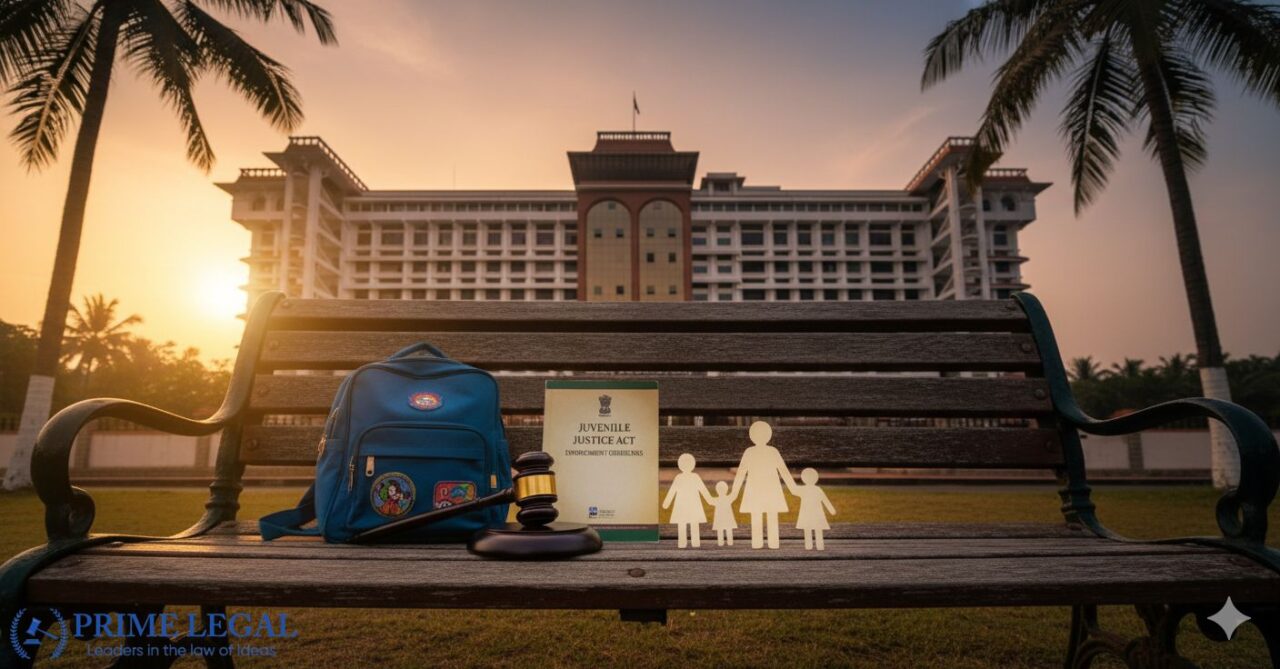INTRODUCTION
Upholding the needed strong and sensitive child protection framework, the Hon’ble Kerala High Court issued fifteen directives to effectively implement Juvenile Justice (Care and Protection of Children) Act, 2015. They emphasized that safeguarding children is a constitutional responsibility rooted in the principles of dignity, rehabilitation and care.
BACKGROUND
The present petition was filed by two Petitioners. One of the Petitioner is an Human Rights Activist, Sampurna Behura, who was the sole petitioner in the case of Sampurna Behura V. Union Of India & Ors. (Writ Petition (Civil) No. 473 of 2005) in which the Apex Court directed the State Government and the Central Government regarding proper implementation and functioning of the Juvenile Justice System across the country. The other one is an NGO actively engaged in anti-slavery and anti-trafficking initiatives to protect children from exploitations..
In that matter the Supreme Court was apprised of the continuous failure of the State Government and the Central Government in implementing both the previous and present Juvenile Justice Legislations and other such concerning issues in the protection of children. However, even after the directions both the Petitioners contended that the State of Kerala has failed not mandated with the directives in the mandated reforms. Henceforth, the petition was filed before the Supreme Court, to direct the State of Kerala to implement and bring into effect the directions of the Apex Court in its previous Judgement.
In the suo moto proceedings taken by the Kerala High Court, titled, Suo Moto v. State of Kerala & Ors. and connected cases (Neutral Citation:2025:KER:83043) the court observed deficiencies in the functioning of child care institutions, juvenile justice boards and related infrastructure in the State of Kerala. The Court noticed that existing gaps in staffing, inspections and audits necessitated corrective measures to ensure that children in conflict with law or in need of care and in protection receive the rights and services as mandated under the law.
KEY POINTS
- The Court directed the State Government to ensure time bound reforms filling all vacancies in the juvenile justice system at the earliest.
- It mandated the regular childcare institution and systems to ensure compliance with standards and statutory obligations.
- The Court prescribed mandatory annual social audits of institutions providing services to juveniles to guarantee transparency and accountability.
- Child Care institutions should maintain individual care plans (ICPs) for every child ensuring proper educational, mental support.
- The State Child Protection Society (SCPS) must oversee and monitor District Child Protection Units to ensure uniform and proper implementation of mechanism for Child Protection
- Coordination between CWC’s, JJBs, Police must be there to ensure timely rescue, rehabilitation, and social reintegration of children.
- Surprise inspections must be carried out in the Child Care institutions to prevent, neglect, abuse or mismanagement.
RECENT DEVELOPMENTS
The State has been instructed to regular compliance reports, on staffing, infrastructural upgrades, and committee functioning. The ruling follows with the earlier Supreme Court judgement stressing that timely functioning of child protection is not discretionary but compulsory. The focus now shifts to rigorous implementation, that system remains child-centric and rehabilitation based.
CONCLUSION
The Kerala Court’s judgement made a strong reaffirmation of the constitutional and humanitarian duty to protect children in need of care and protection. By mandating structural improvements, professional training, and accountability measures, the judgement seeks to strengthen the rehabilitation framework, reduce systematic lapses and ensure dignity and safety for children within institutional and State care.
“PRIME LEGAL is a full-service law firm that has won a National Award and has more than 20 years of experience in an array of sectors and practice areas. Prime legal falls into the category of best law firm, best lawyer, best family lawyer, best divorce lawyer, best divorce law firm, best criminal lawyer, best criminal law firm, best consumer lawyer, best civil lawyer.”
WRITTEN BY- SOUMITA CHAKRABORTY


